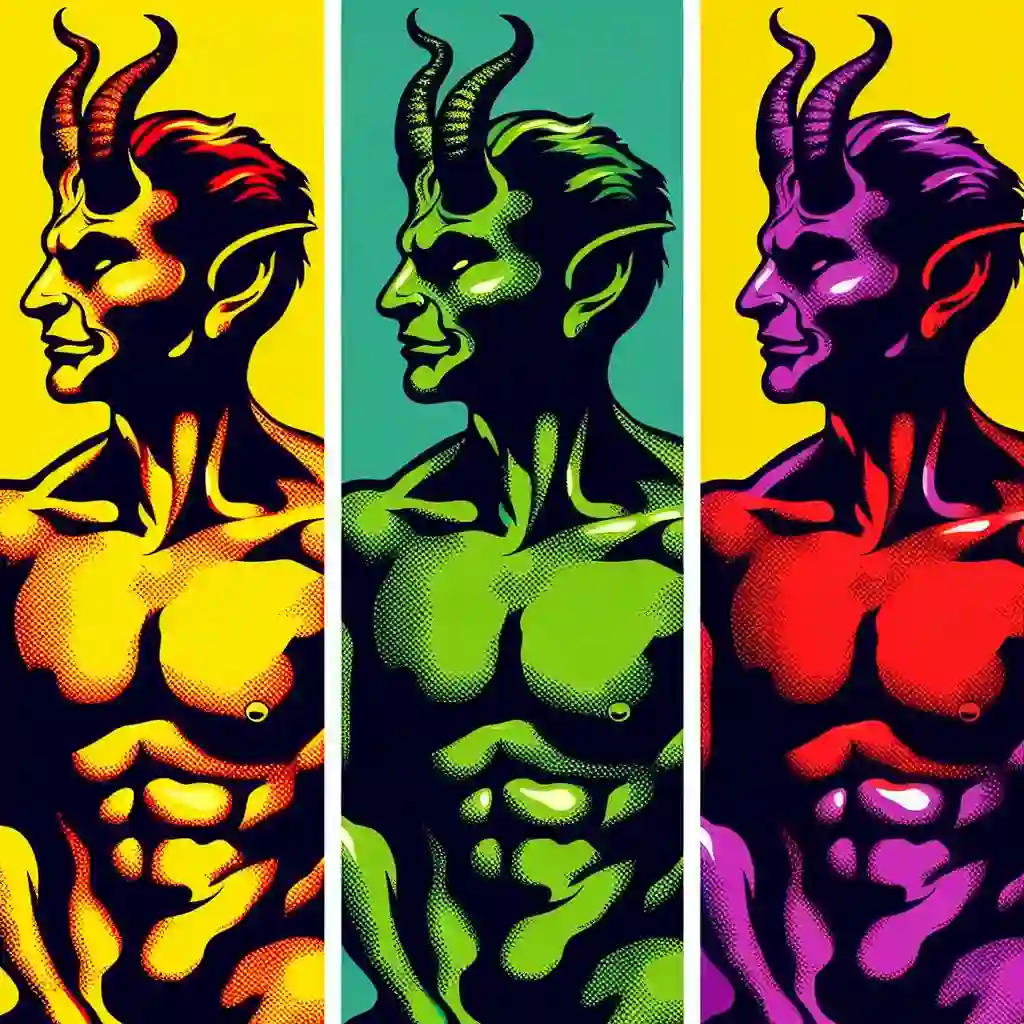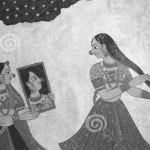In my hometown, there’s an affliction that affects only newlywed women. From what I heard from my neighbors, my mother was one of the few who were fortunate enough to avoid it. Now, even before I was born, people had proposed countless theories about this strange illness, some of which I heard from my father. The men of old times dismissed it as irrational behavior caused by anxiety and homesickness, but the men of my father’s generation were a little more sophisticated. Well-versed in international literature, they believed apparitions similar to incubi to be the source of this malady. I have not received enough education to know what incubi are, but I have felt ghosts in my town multiple times.

The last case I witnessed was when Uday-ji married his first wife, Anagha, a beautiful girl in her mid-twenties. Her father had passed away some time ago. Coincidentally, her mother, the breadwinner in her family, worked at Uday-ji’s textile mill. Once, before the nuptial ceremony, I met her sister (whose name eludes me) and learned from her of Anagha’s shy and coy nature, which probably made her susceptible to the illness.
Uday-ji had obtained her mother’s consent. He had fallen in love with her after first seeing her in the temple, though as per the town’s tradition, he never met her again until the ceremony. My father once told me that he had seen my mother in a shop and a week later had asked her parents for her hand in marriage. I was born the following year.
For the ceremony, Anagha wore a red lehenga. From behind her veil, we could hear the sound of her crying and screaming, and her sister had to hold her in place. This hysterical behavior, as I got to know, is one of the prodrome symptoms of this affliction. Later, Uday-ji confided in me that the local doctors, whom the ultra-progressive journalists from the metropolis slander as quacks, had tried all sorts of adjuvants even before Anagha arrived at the venue, but none proved efficacious. The rest of the ceremony went off without incident.
What this illness hinders most is the consummation of the marriage. My father told me that the apparitions possess the bride to make her act hostile towards her husband so that they, themselves, can enjoy her company. Although some apparitions are weaker than others and leave the bride’s body after a good thrashing, many grooms have to reluctantly divorce their wives after the affliction becomes apparent on the wedding night. I have never witnessed it, but I have heard of cases where men even got injured fighting the spirits.
That night, after all the rites, I was chatting with the neighbors near Uday-ji’s house when he stormed out angrily and started shouting at his in-laws. I did not mean to eavesdrop, but I heard him say that Anagha was possessed. Her mother listened to him, her head hanging, while her sister ran into the house. Some women and a mischievous boy, Puneet, followed her. I went with them and saw Anagha sitting warily on the charpoy in one corner, holding a kitchen knife. She was shaking with rage, her eyes bloodshot. Everyone present there concluded that she was indeed possessed. Upon being chewed out by her sister, she slumped forward, hid her face, and sobbed. I saw my distorted face reflected in the spotless blade of the knife and, sensing some supernatural presence, left the place immediately for fear of being noticed by the apparitions.
The next day, a doctor told me how Uday-ji had visited almost every clinic in town, seeking a solution to his apparition troubles. Another doctor had tried putting aphrodisiacs in the spirit’s food, but she had refused every dish he had proffered. Even I noticed that Uday-ji’s usually gentle face constantly bore a frown those days. I heard he had tried fighting the spirit but could not fully commit to thrashing her. Puneet laughed and joked that it was the knife that had caused Uday-ji’s hesitation, but I believe it was his love for his wife that stopped him.
A week went by without the spirit releasing Anagha. Every time her husband tried to get intimate with her, she rejected him. She locked herself in the guest room and shut the windows every night, and he could not even see her. She did not eat anything, and her condition worsened. The spirit had not even allowed her to sign the marriage certificate. After receiving Uday-ji’s stern lecture on the sanctity of marriage, her family decided to intervene. Her mother and sister stayed with Anagha for two days, cooked her favorite food, and tried everything they could to convince her. Her mother knelt, kowtowed, and begged her to sign the certificate. Miraculously, Anagha showed some signs of recovery. My father and a doctor told me that stubborn apparitions who don’t succumb to violence sometimes do to flattery. They take pride in seeing mortals bow before them and occasionally show mercy to their victims.
Soon, Anagha and her family accompanied her husband to the registrar’s office to sign the certificate. Uday-ji told me that the official had noticed Anagha’s tears and had pestered her a lot. He had confirmed her consent three times, not realizing that she was just happy to be free of her affliction. When they returned at night, Uday-ji, with his usual smile, consummated his marriage without delay. The following morning, he, back to his jovial self, came to my house with a present of local sweets and chatted extensively with my father. Although the patients of the affliction rarely can return to their usual self, Anagha had completely recovered. She acted as shy as before, hiding her face behind her veil and never smiling publicly. Some jealous fellows started a rumor that she was hiding bruises from her fights with her husband, but even her sister advised against believing them.
Several weeks later, Uday-ji announced that Anagha was expecting a baby. He hired a local granny as an obstetrician and instructed her to care for Anagha during the day and take her leave in the evening. That day, I went with my father to congratulate the couple, and we took fruits as a present. Anagha, her face behind her veil, welcomed us shyly, and I handed the gifts to her. I noticed shallow cuts on her wrist, which she perhaps had received while cooking. In front of us, Uday-ji confessed that the apparition still occasionally appeared to trouble him and that although she had gotten used to his advances, Anagha sometimes tried to fob him off with one excuse or another. Even though he was good at hiding it, the apparition’s presence was probably a source of great distress.
Mulish spirits that stick around the wife even after proper consummation of the marriage appear only once in a blue moon, leaving the local doctors perplexed and the husband in agony. Not relenting to violence, hypnotics, or flattery, doctors claim that a cure does not exist for an apparition like this. While under an illness this severe, pregnancy becomes difficult, and the child gets affected.
A few months passed, and Anagha started experiencing severe pain in her belly and frequent vomiting. Uday-ji haplessly roamed from one clinic to another, and every doctor told him that the spirit was taunting him. Anagha’s sister secretly carried her to the urban quacks, who concluded that she had had a miscarriage. When the girls returned to the town and conveyed the diagnosis between their sobs, Uday-ji was devastated, and their mother broke down, crying uncontrollably. Over the following days, taking advantage of the unfortunate situation, the rumors ramped up. Gossip about the miscarriage’s cause was commonplace, and vile accusations of Uday-ji being violent towards his pregnant wife were floating around, but even Anagha’s mother said not to believe them. Some uneducated young women tried chivvying him into distancing himself from his wife, but he shut them up by showing them the marriage certificate, evidence of Anagha’s implicit consent to his actions.
Perhaps due to the welter of unpleasant rumors and unwanted visitors, the rift between husband and wife widened. Uday-ji, despondent about the spirit ever leaving the couple, sent Anagha back to her home. She stayed there for two weeks before he brought divorce papers to her. I happened to hear that she, under the influence of the apparition, readily signed the papers. I, myself, saw her change. Her demure nature vanished, and she discarded her veil and smiled obscenely even in front of strangers. The local doctors exorcized Uday-ji’s house, and men like my father condoled with him.
The affliction leads to divorce often, destroying two families in one fell swoop: the husband’s and the wife’s. The wife becomes so attached to the apparition that it begins interfering with her daily tasks, and when it inevitably leaves, she becomes hysterical, fights with her family, and, in some cases, develops suicidal tendencies. The spirit ruins her family thoroughly, rendering scarce even the income.
A few weeks later, Uday-ji reluctantly dismissed Anagha’s mother from her job in his factory as her aging body was unable to work competently. She blamed her misfortune on her daughter. Anagha and her sister had to earn a living washing dishes in the city. Every night, when I walked by their house, I could hear Anagha arguing with her mother and the occasional slaps. Once, I heard that the mother owed money for some machine she had broken at the mill before she left and that she had paid the debt with all the money the sisters had earned. Her sister wept, and Anagha fled the house crying. When she returned, I saw her face drooping and tear marks on her hollow cheeks. I realized then that she had bid her farewell to the apparition.
Free from his spirit troubles, Uday-ji was happy as usual. I saw him laughing in front of Anagha’s house. He must have thought of helping his ex-wife, but the apparition probably made him hesitant.
A few days passed, and I learned from my father that Anagha had slit her wrist. I still feel bad for the poor girl who suffered so much just because a spirit had set its eyes on her, and I hope that one day, our doctors will find a cure for this wretched ailment and save future brides from this sad fate.
Uday-ji, ever the optimist, tried his best to alleviate some of the family’s sorrow and attended Anagha’s funeral with a smile.
Yesterday, he visited our house and confessed to my father his desire to marry me. I am ecstatic! I plan to wear a new red lehenga to the ceremony. I can’t help but imagine what our children will look like. I do have some fears that I might catch the same affliction, but my father said that with my beliefs, a spirit will never touch me. I hope he is right.
The wedding is in a week, and I look forward to seeing you there!
Douglas M. Jain is an engineer unwillingly stuck in a field from which he gains nothing. Literature and other forms of fiction are something he frequently runs to as an escape from mundanity. He is also interested in the art of filmmaking.





Leave a Reply